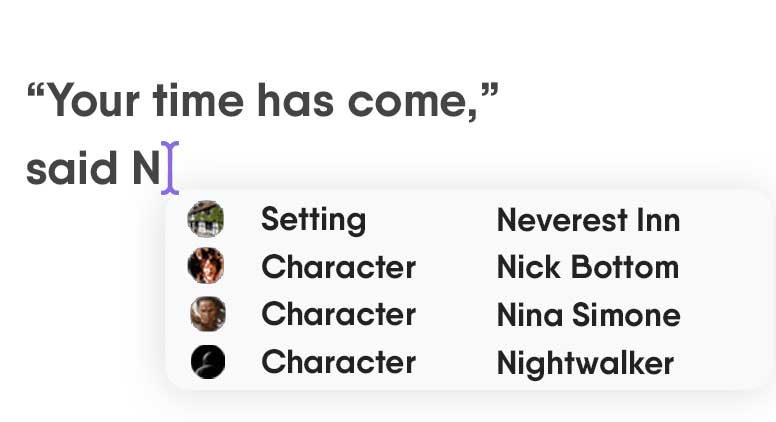Write a Fantasy Novel – 6 Tips for Creating a Rich Fantasy World

Writing a fantasy novel with a lame setting is like shooting yourself in the foot. All outstanding fantasy stories have a rich setting. Think Brandon Sanderson or Name of the Wind. The characters are great, but the setting is what really sets them apart. It’s what gets readers invested in the story, the world, and what the characters have the ability to do in that world. A strong setting adds that level of richness, lavishness, and intensity to your story that’s the cornerstone of fantasy. Write a fantasy novel with a solid setting and you’re halfway there.
In order to write exceptional fantasy, it’s going to take practice, patience, and of course time. But it’ll take a few tips too, and that’s what we’re going to give you here today. Write a fantasy novel that hooks your readers with these 6 tips.
FANTASY WRITING TIP #1: Set the Scale Beyond the Pages
It’s all about perspective. One of the ways J.K. Rowling captured our hearts and attention with the setting of Hogwarts is how much we didn’t see of it. We were zoned into Harry and his dealings in the classrooms and the quidditch fields, but we only heard whispers of the outside. Whispers of the magical forests that held untold adventures.
The perspective was never zoomed out. There was no finite map of the setting and its surrounding area. If we detail every bit and corner of our worlds, the world seems small. It takes up the readers imagination instead of letting it soar. Your setting should spill off the page and into the users periphery, into the mystery. In this way the setting feels more vast, bigger in scope and ultimately more realistic in the reader’s mind.
FANTASY WRITING TIP #2: Use Your Imagination
When you write a fantasy novel, it’s no secret that you’re going to have to use your imagination – a lot. But a proper fantasy setting is a lot more than adornments. It should be indispensable to the plot itself.
You know that you’ve built your world perfectly if you try to pick up your entire story and drop it into another setting and it doesn’t work. If you can take your story and drop it into the Lord of the Rings and it works just as well, your world might not matter at all.
Use your imagination and make your worlds unique, different. Let it affect your characters and your story.
FANTASY WRITING TIP #3: Reserve the Right to Stretch it Out
The coolest thing about fantasy writing is that it’s limitless and unbounded. The typical fan of this genre had a tendency to expect multiple books, each interesting and unique in it’s own way, yet having a touch of the previous. This means you don’t need to give everything away right in your first book. You do have the option to expand and stretch your setting out into fat volumes.
If you introduce a character or a setting into your story just to show a specific location or a specific plot point when the story could have easily moved forward without them – you’re wasting it! Most of the time, it’s best to save it for later. Save it for Part 2 of the adventures of Huckleberry Finn and the Goblin Emperor!
FANTASY WRITING TIP #4: Choose Thoughtful Names for Your Locations
J.K. Rowling used noteworthy names like the Forbidden Forest, Gringotts Bank, Hogwards, Diagon Alley, etc. for the settings in Harry Potter.
Did you like it?
I know at least a few million people that did. And the reason it stuck is because they were memorable.
Yes it’s fine to use historically accurate names or “fantasy-themed” names that sound like the last name of an orc for your settings, but why complicate it? At least give it a nick name that your characters use. If they lived in Los Angeles, they’d inevitably start calling it L.A.
Your setting names should be meticulous – tying to the story in some way. They should have a mythological touch, maybe some non-English language inspirations, but don’t go too far with it! It should paint a vivid imaginative picture in the reader’s mind. Much like how King’s Landing in Game of Thrones inspired such grandeur when we read it!
FANTASY WRITING TIP #5: Draw Inspiration From Reality
In an attempt to create a fantasy setting that’s extremely unique, some authors become “too creative”. I’ve read many books that were so far removed from reality that I could barely picture it. A reader needs to be able to relate to your setting and story.
The way to write a good fantasy setting is to pick some ideas and concepts from real life, do some research and then supplement this with your creativity. It’s awesome if people in your world can fly around, but if their ability to fly is dependent on the magical juju bean juice that’s in their blood because of their infant pilgrimage to the neighbouring Kingdom of confused ducks, you might lose a few readers along the way.
FANTASY WRITING TIP #6: Use LivingWriter to Store and Keep Track of Your World-Building Elements

With LivingWriter you can store all your Settings, Places, and Characters in separate story elements. You can add sections for each of your story elements to describe each and every detail of your settings. Having these easily accessible while you write is invaluable! Does the Magical Forest have yellow oak trees, red bushes? Are there bears roaming the woods or nightwalkers? Just click the setting in your story and you’ll get the answers to your questions on the right sidebar!
Write a Fantasy Novel with LivingWriter for free now!
How To Write a Fantasy Novel With a Rich World – Recap
One of the most important aspects of fantasy and fiction (in general) is the setting. The setting provides us the literal ground for our characters to walk on. Locations present challenges to our characters. Journey’s to locations inspire and shape narratives and future works. So take your time developing the setting for your fantasy book. You’ll be pleased with the results.
These tips are very excellent. I love these tips. Hey Guys, I found some important information, here all various types of name generators and thank you for sharing this excellent information.